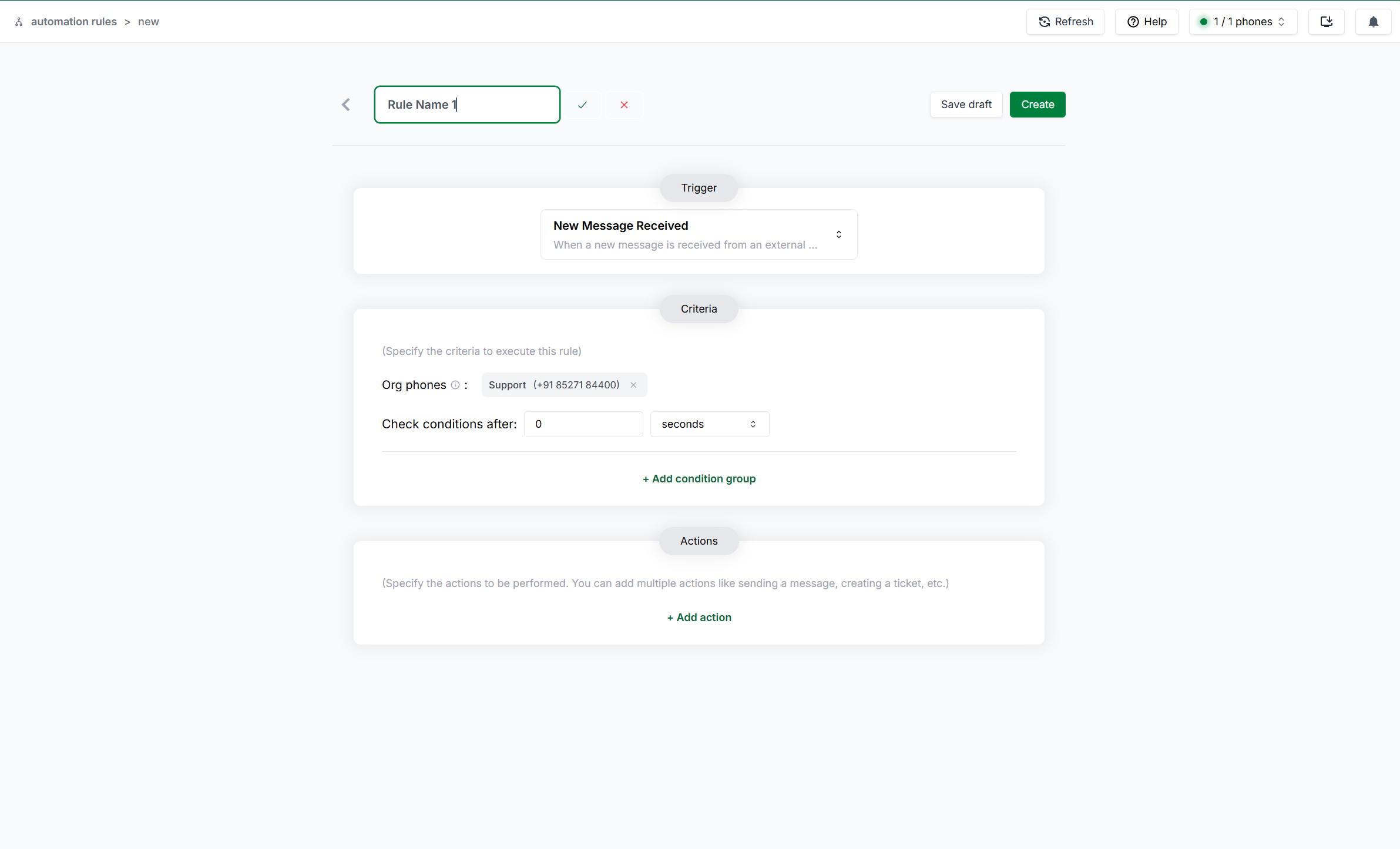Components
Automation rules consist of three main components:- Triggers
- Conditions
- Actions
Setting up Automation Rules
Add new rule
- Go to the Automation Rules page in Periskope.
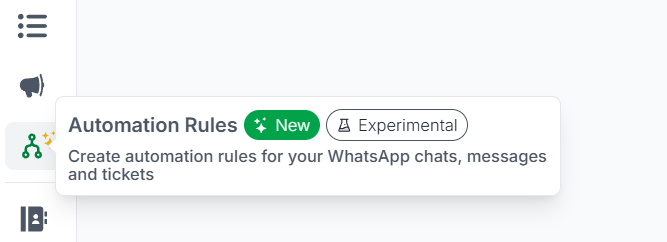
- Click on the ”+ New Rule” button. You can also add a rule by pre-filled templates available on the screen.
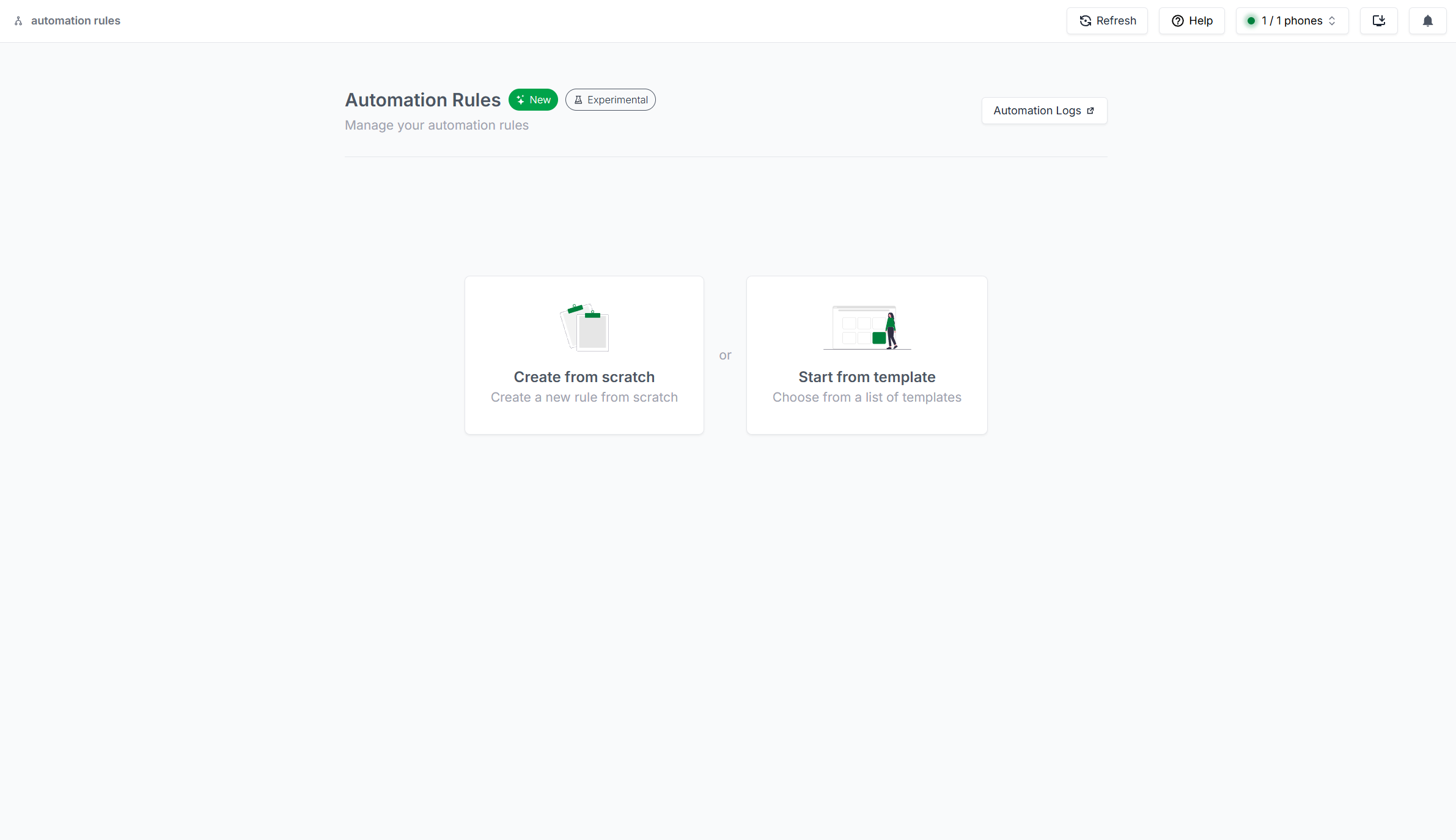
- Create ticket on important flagged messages.
- Assign chat on new chat (Round Robin)
- Flag message on message with keywords (urgent, important)
- Automated replies on message with keywords (hello, hi)
- Automated replies on message outside business hours
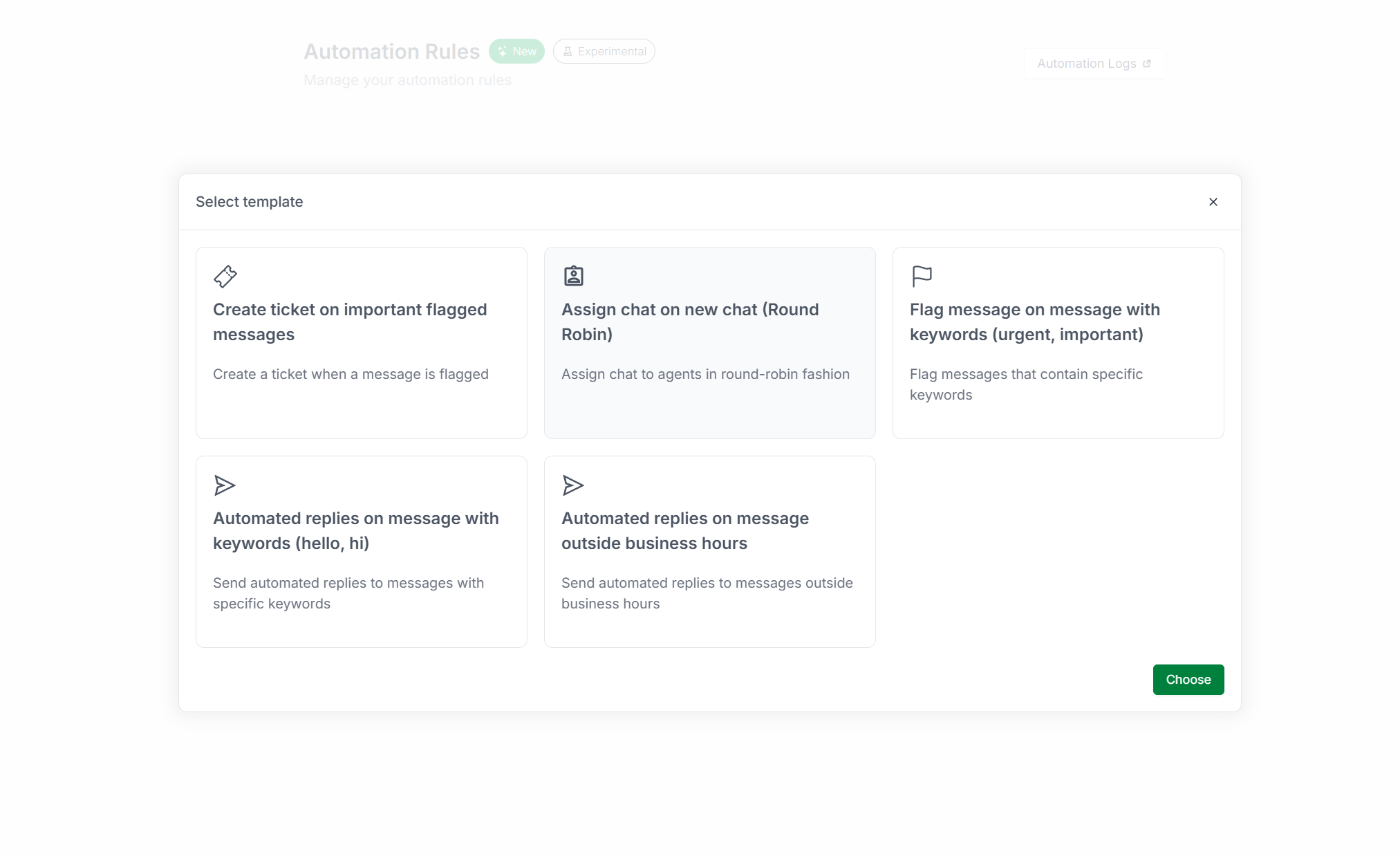
Choose a Trigger
In the “Trigger” section, select the event from the dropdown list that will initiate the rule. For example, “New Message Received.”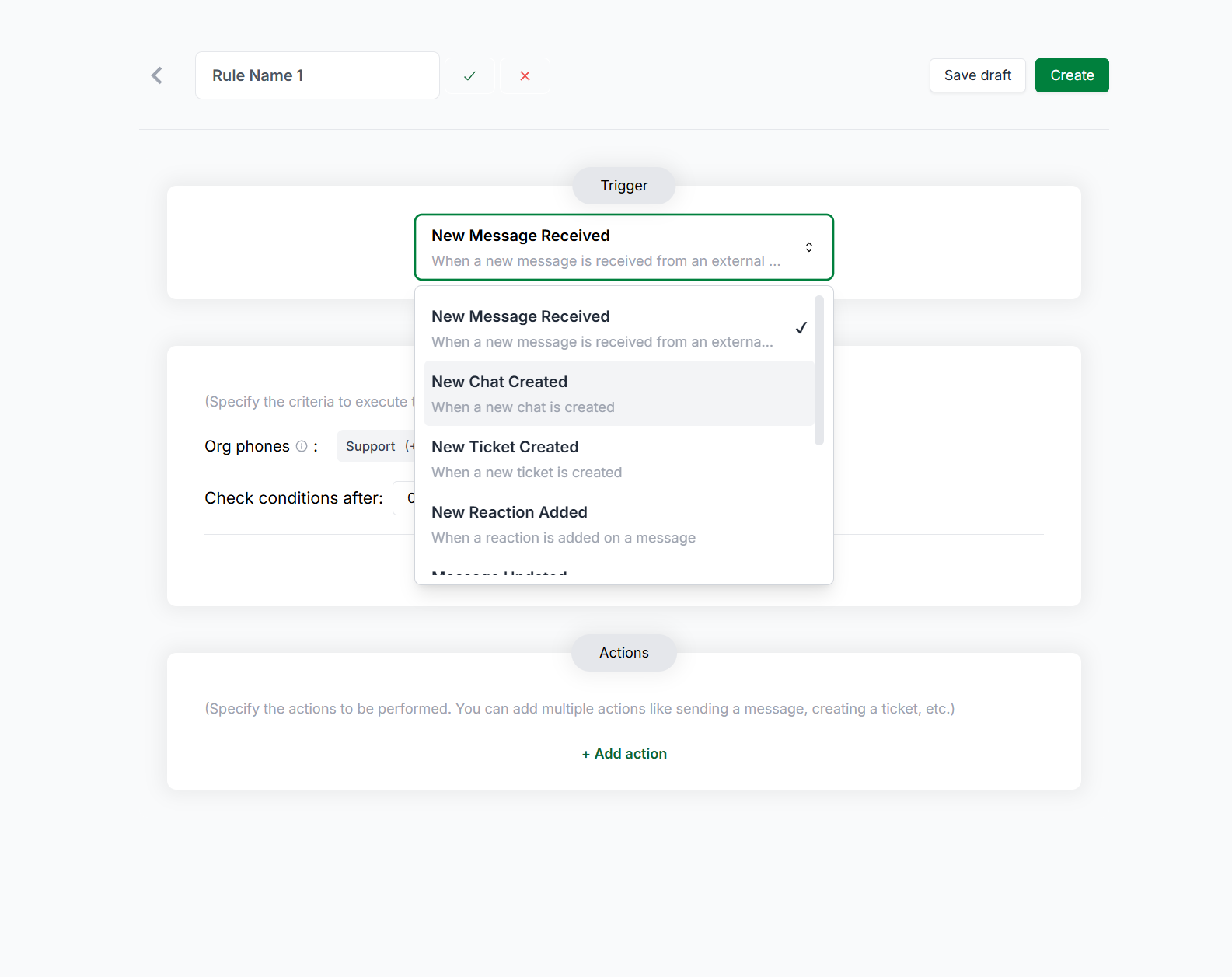

Add conditions
Define the conditions that must be met for the rule to execute. You can add multiple conditions using logical operators like AND, OR, and nested conditions.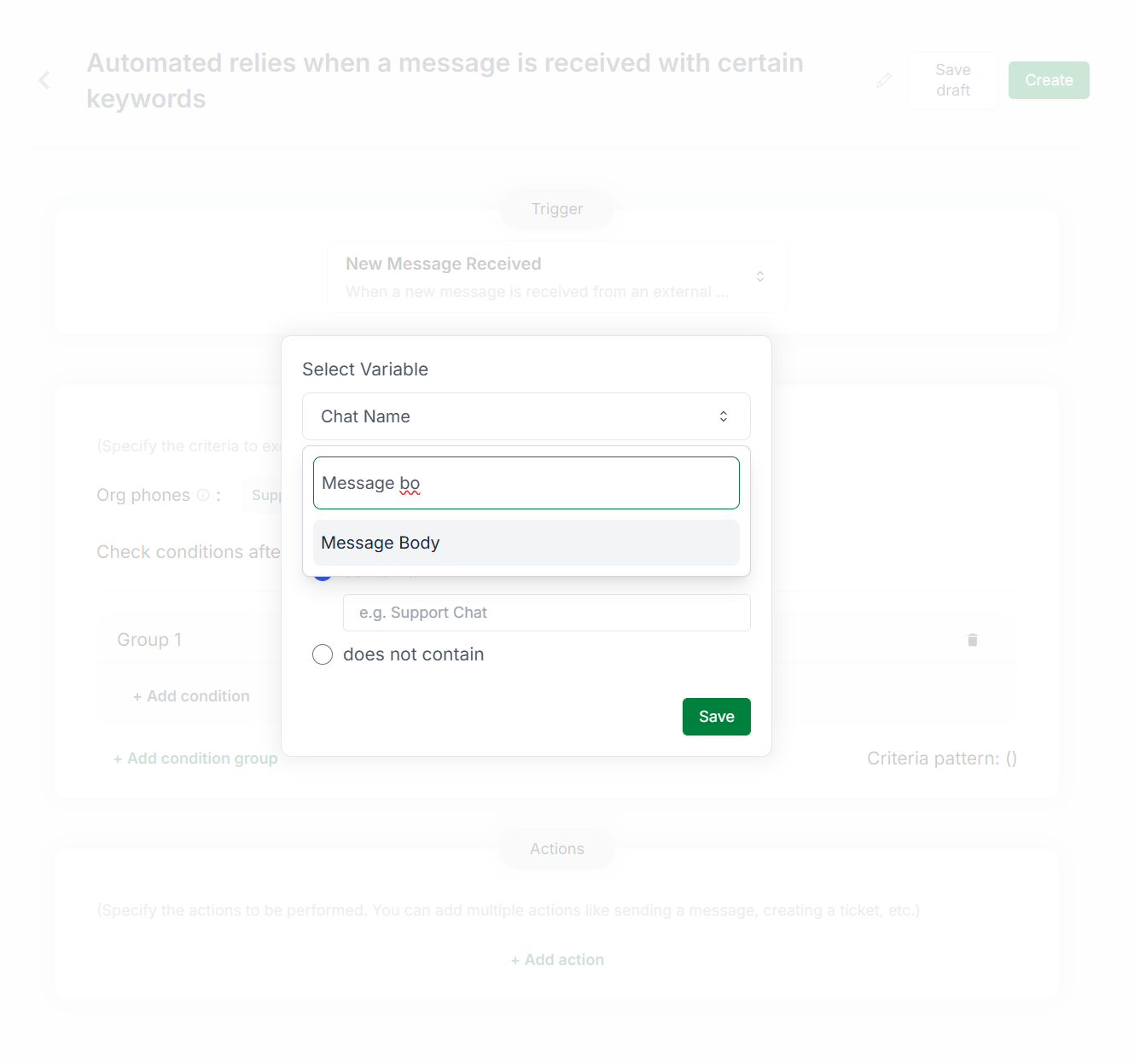


You can also add
delays before evaluating the conditions to allow for time-based criteria.
Add actions
Specify the actions that will be executed when the conditions are met. You can add multiple actions and set delays for each action.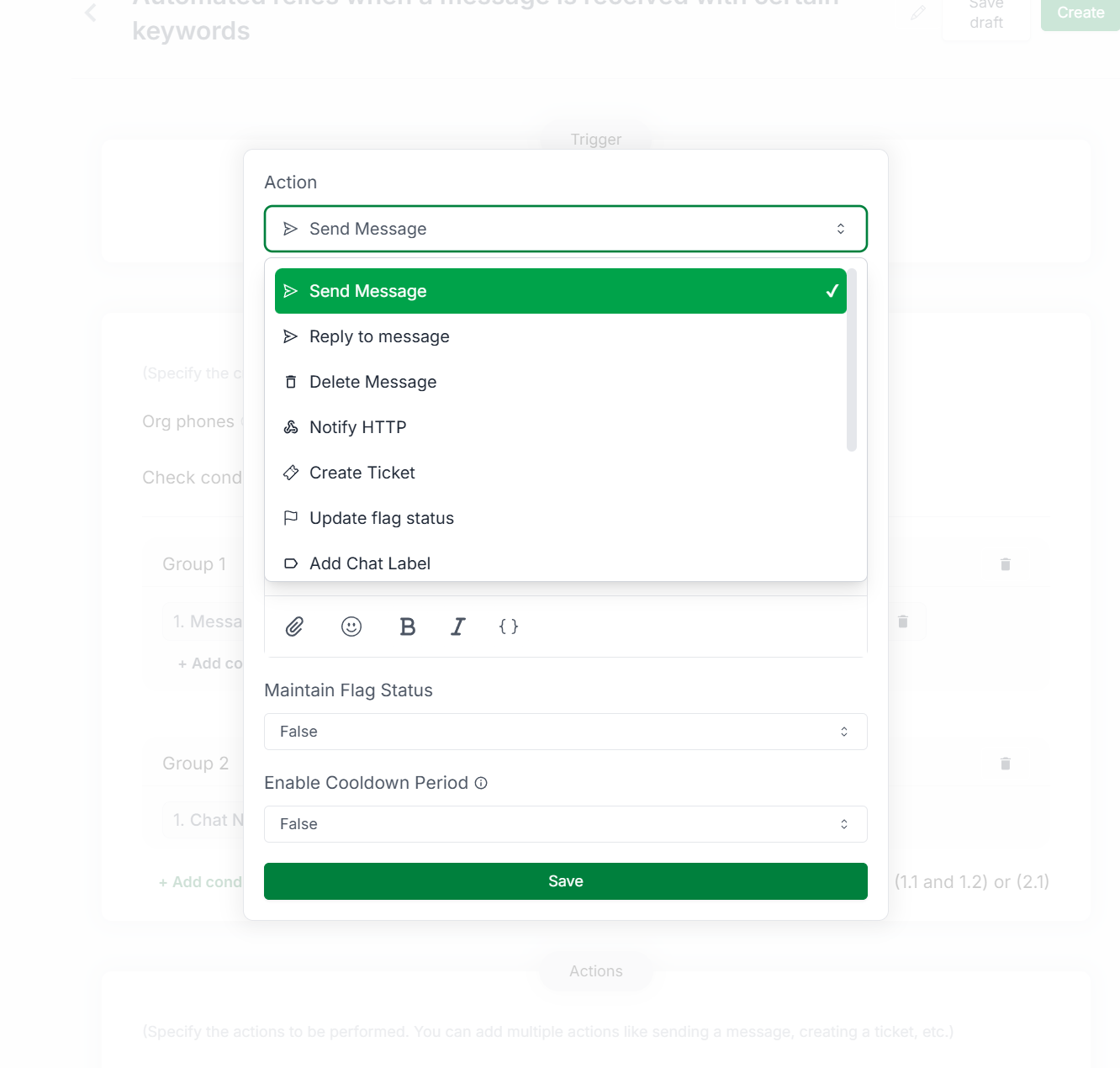

Example: Automated replies on message with keywords (urgent, important) 📃
Let’s consider an example of setting up an automation rule: Scenario: Automatically send a message if a new message is received and contains certain keywords.Set the Conditions
Define a condition: Check if the message contains specific keywords, e.g., urgent, help.Use logical operators if needed: For example, message contains ‘urgent’ OR ‘important’.Optionally, set a delay before checking the condition (e.g., 10 seconds).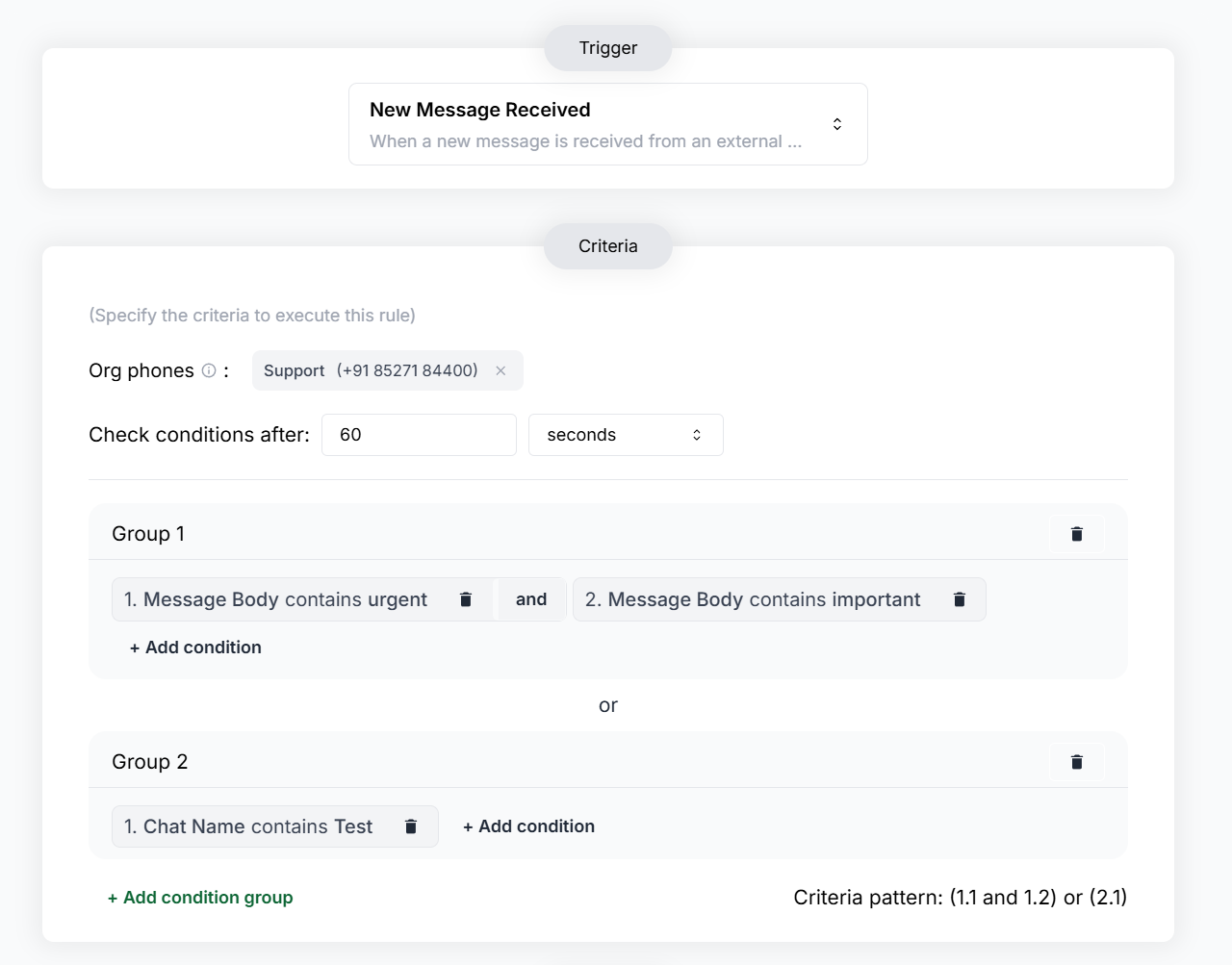

Add Actions
Select the action: SendMessageAction.Specify the message to send, such as: “We have received your message and are processing your request.”Optionally, add a delay for when the action should be executed.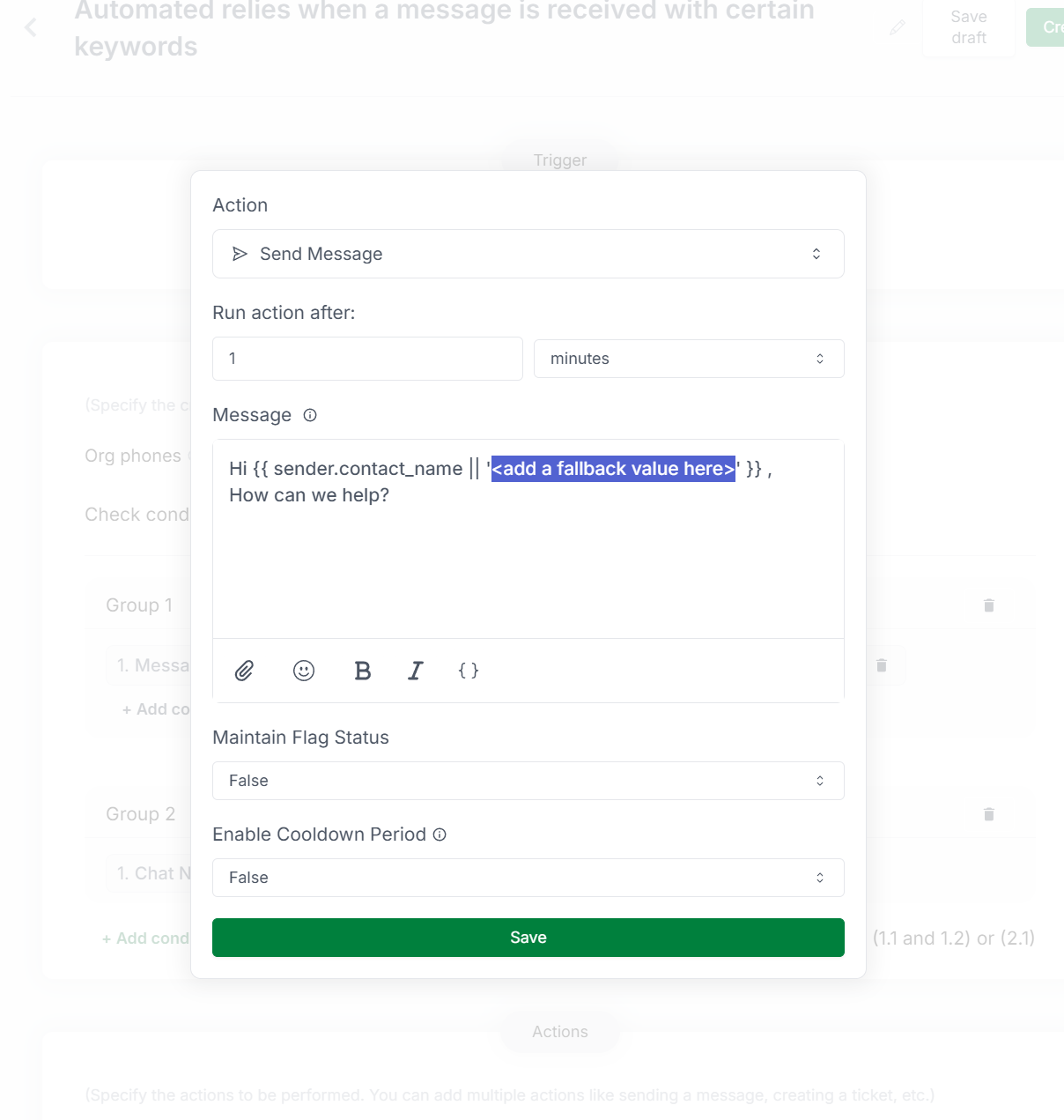

Finish
Save the rule and activate it to start automating the workflow.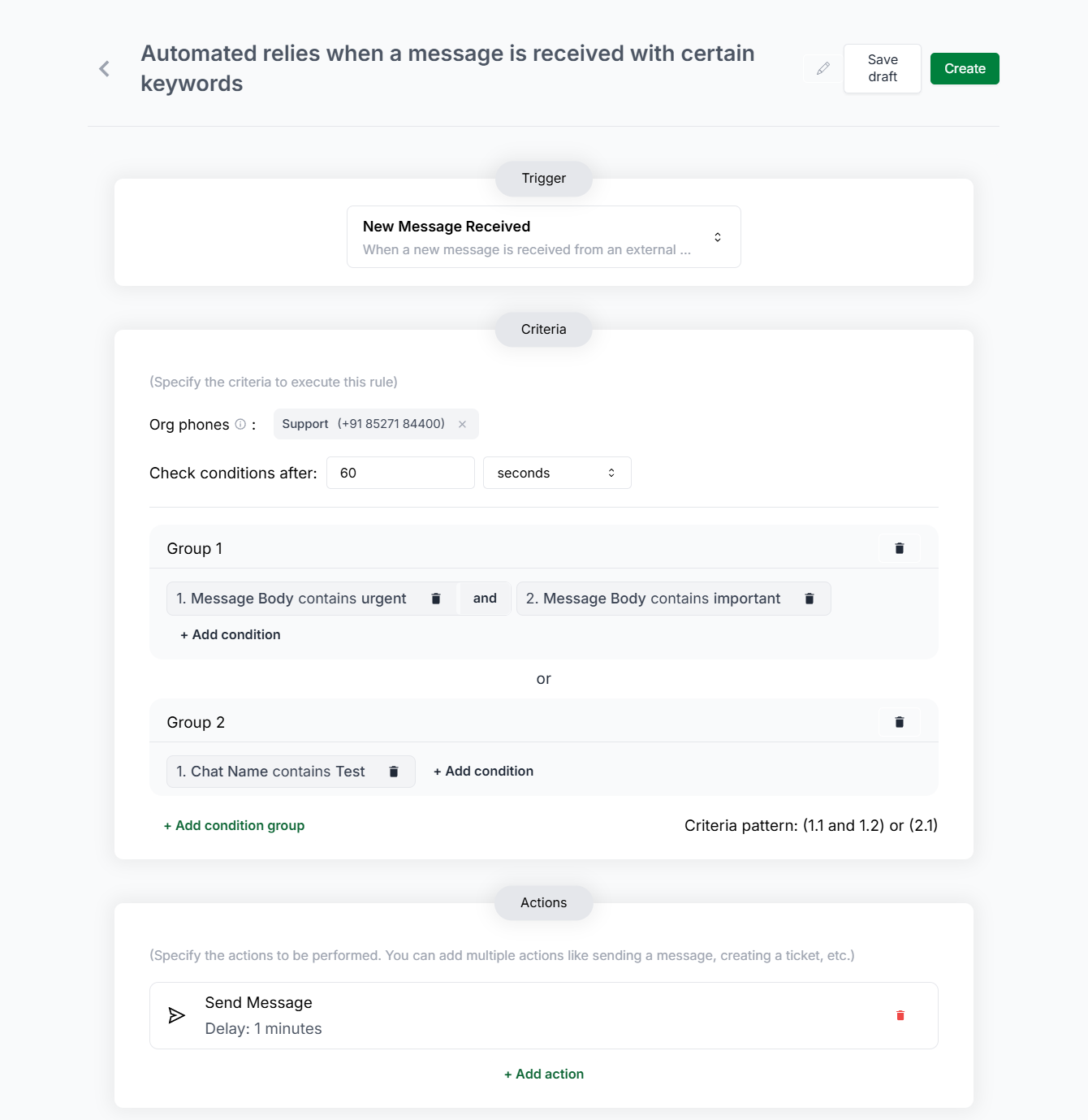
Final Rule:
- Trigger: When
New Message Received - Conditions: If message contains
urgentORimportant - Action: Then send a message “We have received your message and are processing your request.”

